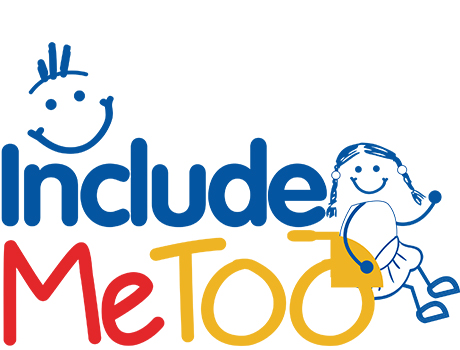Building a disability friendly and inclusive tomorrow.
The Global Disability Children and Young People’s Charter has 12 commitments which underpins the Convention on the Rights of Persons with Disabilities, United Convention on the Rights of the Child and the Sustainable Development Goals.
Sign up to the charter:
Commitment 1: Inclusive Education
- Education must be inclusive for all, allowing every child and young person with disabilities a chance to reach their full potential and have their individual abilities and additional needs recognised and supported; ensuring teachers and all working in schools, colleges and universities are adequately equipped with resources and training to ensure inclusion, fully accessible inclusive settings; provide opportunities to learn sign language to increase inclusion of deaf children and young people amongst our peers in educational settings, their communities and society.
Commitment 2: Participation and Representation
- ‘Nothing about us without us’ must be taken seriously, ensuring organisations and decision makers include children and young people with disabilities to bring changes and make improvements, and support our inclusion, participation and representation, including our rights, to be championed widely, empowering and providing opportunities for children and young people with disabilities to be changemakers, leaders and community builders worldwide.
Commitment 3: Gender Equality
- Gender equality across the diverse populations of persons with disabilities must be achieved, including recognition of women and girls with autism, greater understanding of intersecting identities and the individuals who hold these identities, and better opportunities and support for young women and girls with disabilities to become independent and thrive.
Commitment 4: Safeguarding ending all forms of abuse and harmful practices
- Safeguarding children and young people with disabilities from all forms of abuse, exploitation and harmful practices is essential including forced marriages, witchcraft accusations, financial, physical and physiological abuse and bullying; children and young people of all ages and sexes should have autonomy over their own bodies, and young people, parents and carers must be able to access sex education and to understand the fundamental principle of consent.
Commitment 5: Inclusive and Accessible Communities
- Inclusion and accessibility is paramount, and must be made compulsory across buildings and infrastructures to ensure public places, education settings and the workplaces are accessible, while also recognising support for mobility, sensory, communication and complex needs; ensuring disabled toilets, changing places are fully accessible and accommodate the care needs of children and young people with disabilities; provision for accessible, adequate housing; and a recognition of the intersecting barriers faced by those across the diverse range of children and young people with disabilities, and real effort to promote integration within the community at every level.
Commitment 6: Digital and Technology
- Commitment must be made to produce user-friendly, reliable and affordable assistive technologies, and to ensure technological advancements are accessible to all individuals; support children and young people with disabilities to increased access to opportunities, independence and support our various abilities and aspirations.
Commitment 7: Economic Empowerment and Employment Opportunities
- Greater support and increased job opportunities should be a key strategic aim, across a range of careers and at all levels from internships to promotions, for young people with disabilities; providing mentoring, peer support and supportive environments through accessible employment, inclusive working practices, with an increased understanding of reasonable adjustments; mandatory disability awareness and inclusion training; commitment to recruitment, retention, promotion and inclusion of young people with disabilities, including invisible disabilities; proactive employers joining up pathways between education and employment, to link young people with disabilities with opportunities to fulfilling employment and ensure we can develop the skills to allow us to reach our full potential.
Commitment 8: Removing Stigma and Discrimination
- It is vital to increase and expand efforts to remove disability-related stigma and discrimination throughout society, through increased education to end negative stereotypes and assumptions associated with disabilities; increase understanding of the social model of disability; a focus on attitudinal change through media, increasing the visibility, representation and inclusion of persons with disabilities from all communities.
Commitment 9: Support and Wellbeing
- Provision must be made to support a good standard of living for children and young people with disabilities globally, supporting our independence and our right to housing, jobs, socialising and to be supported where needed as lifelong learners; support for a free at the point of use social care system which includes vital medical care, therapy, and financial assistance where needed, including mobility and accessibility aids.
Commitment 10: Humanitarian Crises
- Organisations must ensure all future and ongoing humanitarian action is fully inclusive to children and young people with disabilities, including disaster risk reduction.
Commitment 11: Legislation and Policies
- Awareness and understanding of disability rights, law and policies among children and young people with disabilities, and our friends, families and communities is essential: those with the power to make change must push for governments to implement and enforce legislation to drive equality and inclusion forward, mandating schools, employers and businesses to be disability-accessible, inclusive, non-discriminatory, and to provide reasonable adjustments while recognising individuals’ talents.
Commitment 12: Data
- Development of the use of data and evidence must be championed, to understand and address the scale and nature of challenges faced by children and young people with disabilities.


